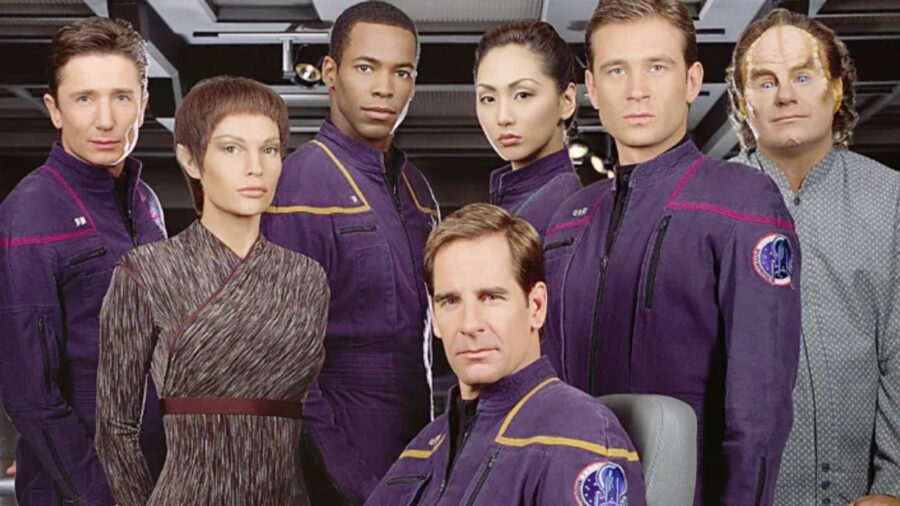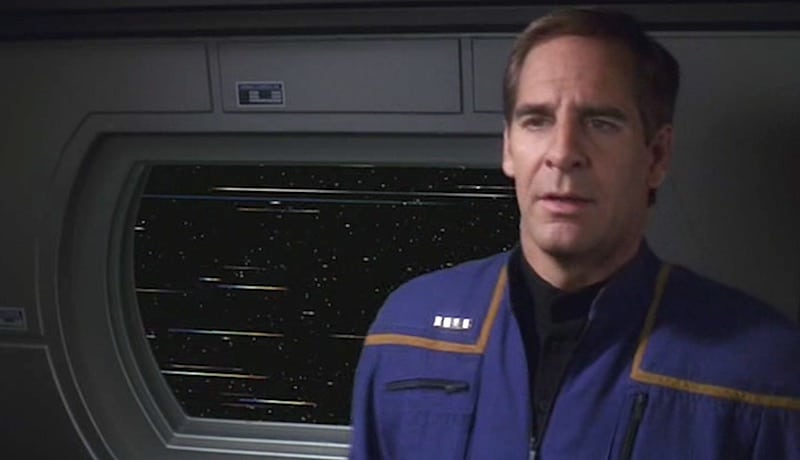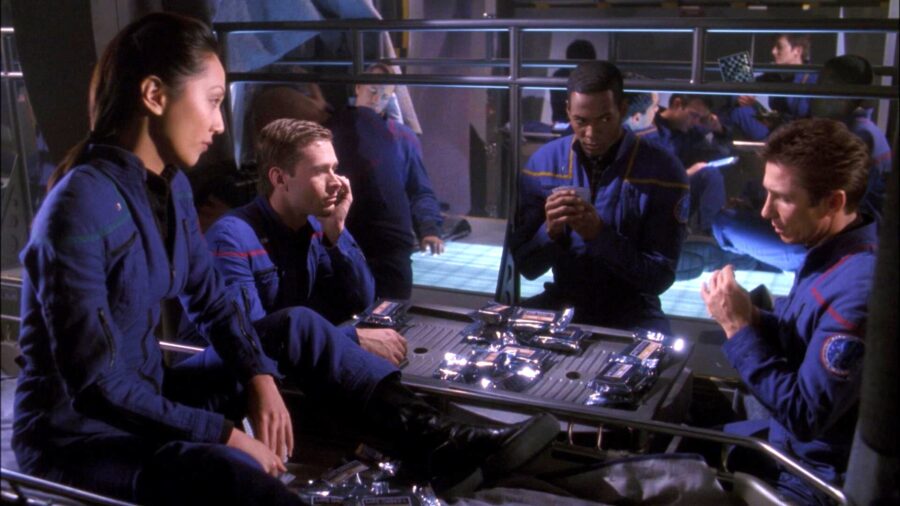Star Trek’s Biggest Mistake Of All Time

We know Star Trek’s biggest mistake, and Star Trek: Enterprise is its victim.
With a property as long-lived and complex as Star Trek, there are bound to be mistakes, especially since it wasn’t originally meant to be a multi-series, multi-film, shared cinematic universe. Of course continuity errors, science slip-ups, and egregious stretches of logic, physics, and characters abound in the nearly 57-year-old franchise, but we think the bigger mistakes happen in broad-stroke decisions. So what decision counts as the franchise’s worst mistake?
With no other new Trek series to act as an anchor the way TNG and DS9 had in previous years, Enterprise was left to represent and uphold Star Trek all on its own with a new, risky concept and without the franchise’s name in its title.
It might just be what was done with Star Trek: Enterprise—not the series itself, but how it was managed. As we’ve noted before, Star Trek: The Next Generation was a huge risk that paid off handsomely. Not only did it become wildly popular just in time for the franchise’s 25th anniversary, but it outlasted the Original Series by four additional seasons, ultimately leading to four TNG films, three more TV series, and the longest stretch to date of constant new Star Trek on television—18 years.
It’s possible that stretch could have been longer, though, had Star Trek: Enterprise been handled differently. After TNG became successful, Star Trek: Deep Space Nine began while the previous series was still producing new episodes. A few years later, when TNG ended, Star Trek: Voyager began in the midst of DS9’s run.
All three of those series ran seven seasons each, so that it simply became expected that the next Trek series would also run for seven seasons. But here’s where the mistakes start. First, that assumption—an understandable one at the time—was made, meaning writers and producers had a seven-year mission in mind for the NX-01 before she even launched.

Then, the series began without the Star Trek name as Enterprise and was premiered after the finale of Star Trek: Voyager. With no other new Trek series to act as an anchor the way TNG and DS9 had in previous years, Enterprise was left to represent and uphold Star Trek all on its own with a new, risky concept and without the franchise’s name in its title. But none of those were the biggest mistake.
Enterprise Should Never Have Aired On CBS
The biggest mistake was putting Enterprise on CBS. Star Trek had, to that point, thrived in syndication. In 1969, after struggling to get three seasons on NBC, the Original Series could not survive cancellation again, and it was not until the episodes were syndicated and aired at different times on different channels across the country that the show expanded its audience and began building a stronger fanbase. It was syndication that gave Star Trek new life after cancellation, and it was that new life that spawned zines, fanfic, and conventions.
When it came time to make Star Trek: The Next Generation, Paramount had learned its lesson, launching it as a first-run syndicated series instead of a network show. This allowed the series to tap into the syndicated market from the start, and it never looked back. It was this same strategy that gave both Deep Space Nine and Voyager their long lives.
Perhaps it was admittedly understandable hubris that created the expectation of seven seasons and led Paramount to decide to launch Enterprise as a network show. Whatever the case, the decision was made, and the fallout was almost immediate. Each season, the series struggled to find its audience, prompting increasingly desperate efforts to retool the show in hopes of attracting viewers. Each season, the ratings got lower and lower.

By Season 4—practically a gift from CBS—cancellation was unavoidable. The show’s writers were forced to cram their vision of a series that led to the founding of the United Federation of Planets into one remaining season and one terrible holodeck finale. That episode sucked the life out of what became a rushed birth for the storied interstellar organization, killing the middling momentum the series had managed to create.
And let’s be clear: Enterprise (mercifully renamed Star Trek: Enterprise in its third season) is good Star Trek. At times, it’s even great Star Trek, and it has had a lasting impact on the rest of the franchise, from the Kelvin films to Strange New Worlds. It was lovingly made by many of the same talented artists who brought us the rest of the Berman era.
By Season 4, cancellation was unavoidable. The show’s writers were forced to cram their vision of a series that led to the founding of the United Federation of Planets into one remaining season and one terrible holodeck finale.
But it could have been so much more. Not since the Original Series had Star Trek risked a network show, and not since then had it struggled so hard to survive. By the time Enterprise ended in 2005, many felt Star Trek itself had finally died after having been declared dead so many times before.
The next five years felt very long to Trek fans and, as the new eras emerged, it was clear that Star Trek would never be the same again.
To be fair, Star Trek shouldn’t stay the same; the entire series is about growth, progress, and positive change, and also about taking bold risks. But it would have been nice to see Star Trek: Enterprise and the Berman era end with a bang instead of a whimper. Maybe in the future, some temporal paradox will see Crewman Daniels showing up with episodes of the series that could have been. Until then, we can be glad for the good Star Trek: Enterprise was able to accomplish, despite being the victim of Star Trek’s biggest mistake.










